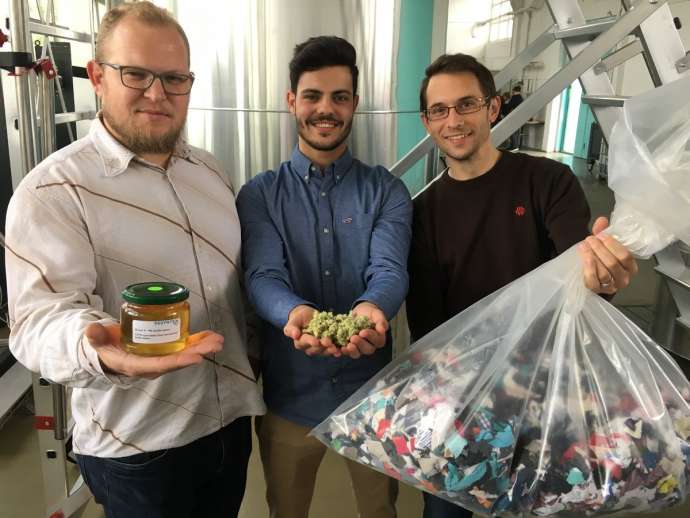STA, 1 June 2019 - The University of Maribor, cooperating with the Tekstina company and the Institute for Environmental Protection and Sensors (IOS), has set up a demonstration lab for chemical textile recycling which has already caught the eye of giants like Adidas, Nike and Decathlon.
The lab has been developed as part of the European project Resyntex, which is helping develop technology for the recycling of low quality textiles usually slated for incineration or waste repositories.
Resyntex involves 20 partners, including the three Slovenian ones which have launched a demo recycling line in Maribor. They see it as harbouring major use potential, as it is meant to enable new findings with regard to obtaining secondary resources from various types of waste, not only textiles.
Also immense are the marketing possibilities, given that EU legislation has brought very ambitious new waste recycling targets.
How can your old socks drive the #circulareconomy? @RESYNTEX can transform your #textile waste into glue, plastic, paint and other products, taking #recycling to new levels. pic.twitter.com/TIoJlEcbRd
— Martin Watson (@SWVisionsBE) May 22, 2019
"In June we are mostly offering these services to the project's partners, while as of 1 July the line will be available to all who wish to think sustainably," IOS director and Maribor Faculty of Engineering professor Aleksandra Lobnik told the STA.
"We've been engaged in many talks, but no contracts have been signed yet," she said, noting that many textile companies had committed themselves to sustainable development and would now also be bound to it though legislation.
Textile waste is being treated with chemical depolarization and enzymatic degradation. The project is extra valuable in that it is the first to also tackle textile mixtures, something not possible so far.
"Such textiles make up 94% of all textiles on the market," explained Lobnik, who is the project's technical director.
The lab allows the textiles to be broken down into basic chemicals. Cellulose is for instance used to obtain glucose and thereby bioethanol, an energy source, wool is composed of proteins that can be utilized in place of toxic formaldehyde used in wood-based panels, and synthetic fibres can be used to get fresh fibres for new textile or plastic products.
The total amount of waste textiles in the EU is estimated at 16 million tonnes annually, and "waste that now means costs can become profitable".
"What we have in Maribor is only a demo lab, which allows an optimisation of the process so that an industrial facility can be built later on," Lobnik said, explaining such facilities could process several tonnes of textile waste a day.
Along with placing the findings made so far on the market, IOS wants to further step up research with partners in the future.
"Textiles are not the only problem, there are large amounts of other waste, which is why we are already developing technologies meant to also include the decomposition of other types of plastic and materials," Lobnik said.







